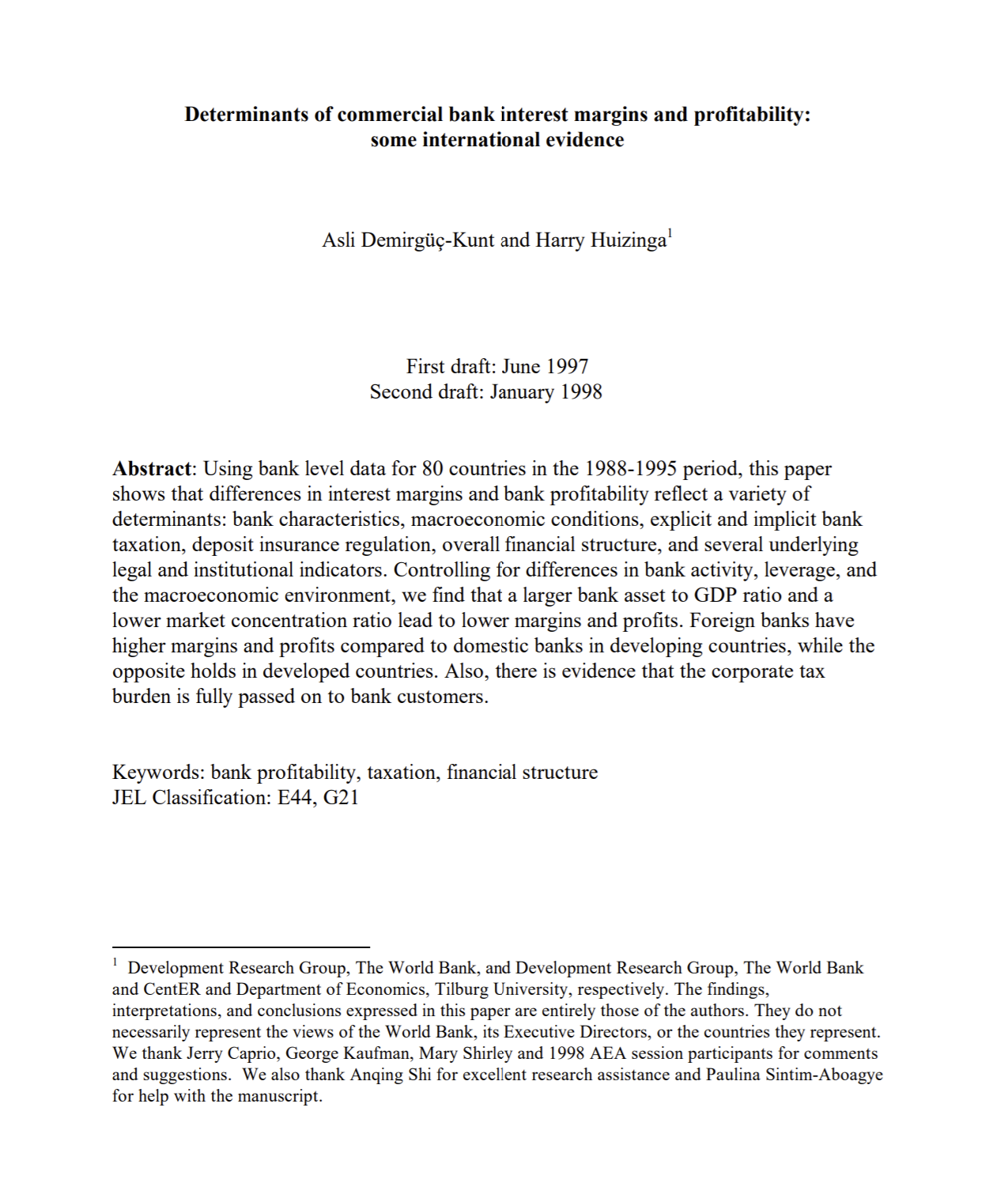Determinants of Commercial Bank Interest Margins and Profitability: Some International Evidence

This paper aims to explore the academics behind bank efficiency. By using bank data from 1988-1995, this paper illustrates that differences in interest margins and bank profitability reflect various determinants such as: bank characteristics, macroeconomic conditions, bank taxes and the regulation of insurance, amongst others. After controlling for certain variables, such as the macroeconomic environment, leverage, and different in bank activity, the authors find a variety of conclusions. First, in countries with a highly competitive banking sector, banks have smaller interest margins and are less profitable. Well-capitalized banks have higher interest margins and are more profitable. Differences in bank activity affect spread and profitability. In developing countries, foreign banks have wider margins and greater profitability than domestic banks. In industrialized countries, foreign banks have narrower margins and less profit than domestic banks. Corporate tax burdens are passed onto bank customers in both developing and industrialized countries. Domestic regulation also effects interest margins and bank profitability.



